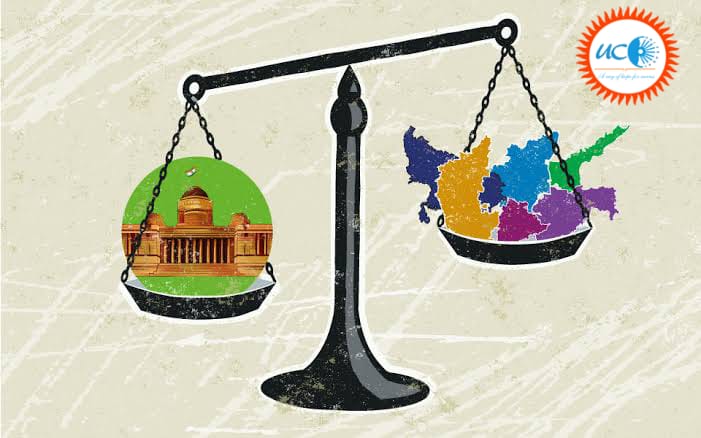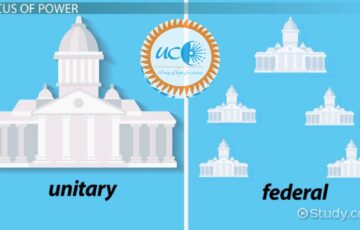What have been major changes in framework for Centre-state fiscal relations in recent years? Analyze their impact on the dynamics of Centre-state relationship.
Approach:
- Introduce your answer by writing the recent important changes that have an impact on the Centre-state fiscal relations.
- Then discuss the impact of such changes on the Centre-state relations.
- Conclude your answer by writing the steps that can be taken to address the emerging challenges.
Answer:
Article 268 to 293 in Part XII of the constitution deals center-state fiscal relations.
Fiscal relations between the union and state governments have undergone significant changes in recent years. These landmark changes include:
- Abolition of the Planning Commission and creation of the NITI Aayog.
- Higher tax devolution to the states from 32% to 42% based on 14th finance commission
recommendations.
- 101 Amendment Act 2016 introduced of Goods and Services Tax (GST) and provided for the
establishment of the GST Council under Article 279A for deliberation and joint decision making.
Government has also accepted recommendations of 15th Finance Commission and changes in formula for sharing of resources between center and states.
These changes have following impacts on Centre-state relationship:
- The introduction of GST has diminished the states’ ability to tax, increasing their reliance on the federal government for financial support. For instance: Fund transfer delays like GST compensation, IGST, etc.
- Compensation cess issue: States have not yet received compensation for revenue losses. This has made it more difficult for them to provide pandemic aid.
- The Centre has held 40% of the cess collected in the Consolidated Fund of India rather than remitting it to funds for specific purposes, according to CAG’s report to Parliament. Cess does not belong to a shareable pool, which lowers the state’s financial resources.
- States obtain more untied funds in comparison to tied funds when tax devolution is higher.
This will enhance the states autonomy in deciding their expenditure priorities.
- GST council makes taxation decisions which were previously independently dispensed by the
states. This has reduced taxing power of the states related to indirect taxes.
- Horizontal imbalances and rising regional inequities: Relying solely on the Finance Commission, a temporary entity, as the vehicle of fiscal federalism, can result in a severe issue of rising regional and sub-regional inequities. The manner funds were awarded to states to supplement their state resources for balanced regional development has changed as a result of the absence of the planning commission.
- The 15th FC terms of reference included looking for ways to connect state effectiveness in implementing federal policies to devolution. The 2011 Census was given more weight in the final conclusion, which the southern states found objectionable. Politicians have referred to this as a move toward coercive federalism.
To iron out issues in central-state financial relationship following suggestions can be implemented:
- Greater fiscal devolution to the states under cooperative fiscal federalism as opposed to combative federalism.
- Establishing the Finance Commission as a permanent entity to address difficulties with fiscal federalism.
- Address the trust gap: The Centre must consult with the states to find a solution to the dire trust gap.
- Fiscal decentralisation: Local governments must receive a portion of the GST revenue.
- GST with a single rate eliminates the need for arbitrary classification and discretion, lowers litigation, and will increase collection. As an illustration, consider Australia’s 10% continuous GST rate. Similar to politics, the Union Government has greater financial clout than the states.
Smooth financial relations between center and states are important for welfare of public given the important role of states in implementing policies of both center and state.









